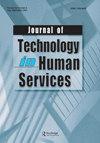A Text Messaging Intervention to Increase Engagement and Retention of Men in a Community-Based Father Involvement Program
IF 1.5
Q2 SOCIAL WORK
引用次数: 2
Abstract
Abstract Cell phone technology is increasingly used in health and social work services for information delivery, engagement, and retention in research protocols. In this study, we explored the use of text messaging to increase engagement, participation, and retention in a responsible fatherhood program. In this mixed-methods study, men who enrolled in the program over a one year period (N = 212) were randomly assigned to receive an intervention consisting of twice-weekly messages for 12 weeks. This study employed a concurrent nested mixed methods design with a main quantitative experimental methodology and a supplemental qualitative methodology. Measures of program engagement and participation were collected at 6- and 12-weeks post-enrollment, as well as overall retention in both the fatherhood program and the research protocol. Qualitative interviews with a sub-sample of study participants were conducted after 6 weeks of services. No statistically significant differences were found in the quantitative portion of the study across randomized groups but participants reported positive experiences with the intervention in both program feedback and qualitative interviews. Text messaging may be a low-cost, viable mechanism for engaging fathers in interventions, but further research is needed to determine the impact on program outcomes.短信干预提高男性参与社区父亲参与计划的参与度和保留率
手机技术越来越多地应用于卫生和社会工作服务,用于信息传递、参与和研究协议的保留。在这项研究中,我们探讨了在一个负责任的父亲计划中使用短信来增加参与、参与和保留。在这项混合方法的研究中,参加该计划超过一年的男性(N = 212)被随机分配接受干预,包括每周两次的信息,持续12周。本研究采用并行嵌套混合方法设计,以定量实验方法为主,定性方法为辅。在入组后6周和12周收集了项目参与和参与的测量数据,以及父亲项目和研究方案的总体保留情况。在6周的服务后,对研究参与者的子样本进行了定性访谈。在随机分组中,研究的定量部分没有发现统计学上的显著差异,但参与者在项目反馈和定性访谈中都报告了积极的干预经历。短信可能是让父亲参与干预的一种低成本、可行的机制,但需要进一步的研究来确定对项目结果的影响。
本文章由计算机程序翻译,如有差异,请以英文原文为准。
求助全文
约1分钟内获得全文
求助全文
来源期刊

JOURNAL OF TECHNOLOGY IN HUMAN SERVICES
SOCIAL WORK-
CiteScore
4.20
自引率
6.70%
发文量
6
期刊介绍:
This peer-reviewed, refereed journal explores the potentials of computer and telecommunications technologies in mental health, developmental disability, welfare, addictions, education, and other human services. The Journal of Technology in Human Services covers the full range of technological applications, including direct service techniques. It not only provides the necessary historical perspectives on the use of computers in the human service field, but it also presents articles that will improve your technology literacy and keep you abreast of state-of-the-art developments.
 求助内容:
求助内容: 应助结果提醒方式:
应助结果提醒方式:


